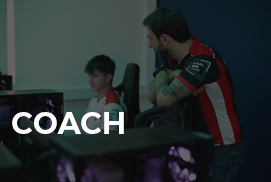

As the esports industry continues to grow, the role of a coach has become increasingly important. A coach is responsible for developing and training esports players, helping them to reach their full potential and perform at their best during competitions. If you are passionate about esports and have experience in coaching, this could be a career path worth considering.
In the esports industry, a coach works closely with a team of players, analyzing their performance, identifying areas for improvement, and developing strategies to help the team succeed. The coach will work with individual players to identify their strengths and weaknesses, and develop training programs to help them improve their skills.
In addition to training and strategy development, a coach also plays an important role in team management. They may be responsible for organizing practice sessions, managing team schedules and travel arrangements, and maintaining good relationships with sponsors and other stakeholders.
The role of a coach is essential in the esports industry, as the success of a team often depends on the quality of coaching they receive. Coaches can work with professional esports teams, helping them to achieve success in major tournaments and competitions. They may also work with amateur or collegiate teams, helping to develop the next generation of esports players.
In addition to coaching, a career in esports coaching can also lead to opportunities in team management, esports consulting, or even broadcasting and commentary. As the esports industry continues to grow, there are likely to be even more opportunities for experienced coaches.
To be a successful esports coach, you will need a variety of skills and experience. First and foremost, you should have a deep understanding of the games you will be coaching in, including game mechanics, strategies, and tactics. You should also have experience in coaching and team management, and be able to work well with a diverse group of players and stakeholders.
In addition to these skills, it can be helpful to have strong communication skills, both verbal and written. You may need to communicate complex strategies and ideas to your team, as well as to sponsors and other stakeholders. You should also be able to work well under pressure, as esports competitions can be high-stress environments.
Esports Wales, for example, have a stream team that includes coaches that provide training, guidance, and support to its players. This stream team is responsible for promoting the Welsh esports community through live streaming and content creation.
A career as an esports coach can be both challenging and rewarding, and offers opportunities to work with some of the best esports players and teams in the world. If you are passionate about esports and have experience in coaching, this could be an exciting career path to explore. With the continued growth of the esports industry, the demand for skilled and experienced coaches is likely to continue to rise, offering even more opportunities for those who are interested in this field.
